Writer/historian doesn’t need to leave home to take a musical journey
By: Brendan Blowers
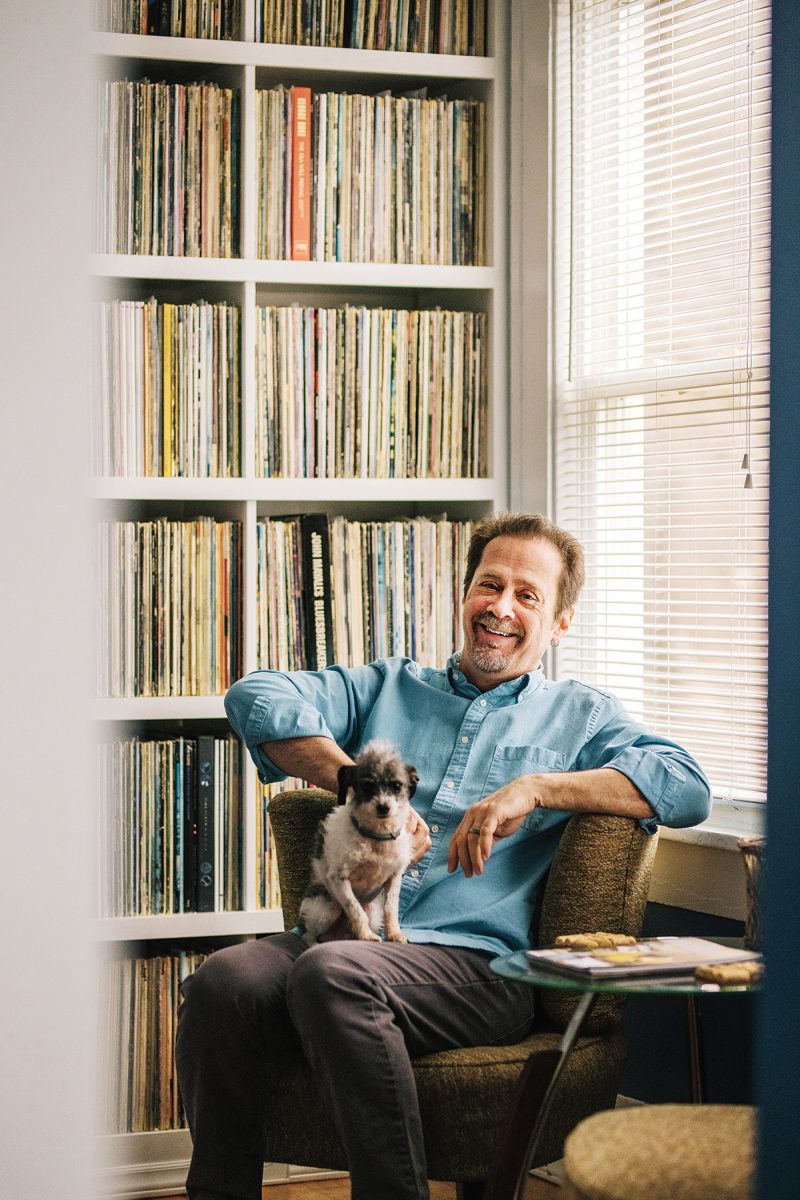
Music journalist Bill Kopp, here with rescue pup Paco, amasses only what resonates.
Photo by Evan Anderson
Bill Kopp gets music in the mail almost every day, but it never arrives with the surprise he received on Friday, January 15, of this year.
“I’ve been buying a tidy little stack of records I need for research,” Kopp says. One of them was the hit 1981 EP by a band called Romeo Void, an American new wave/post-punk outfit from San Francisco that formed in 1979. “I paid five bucks for it; when I reached in to take the record out, a bunch of pieces of paper came flying out with it.”
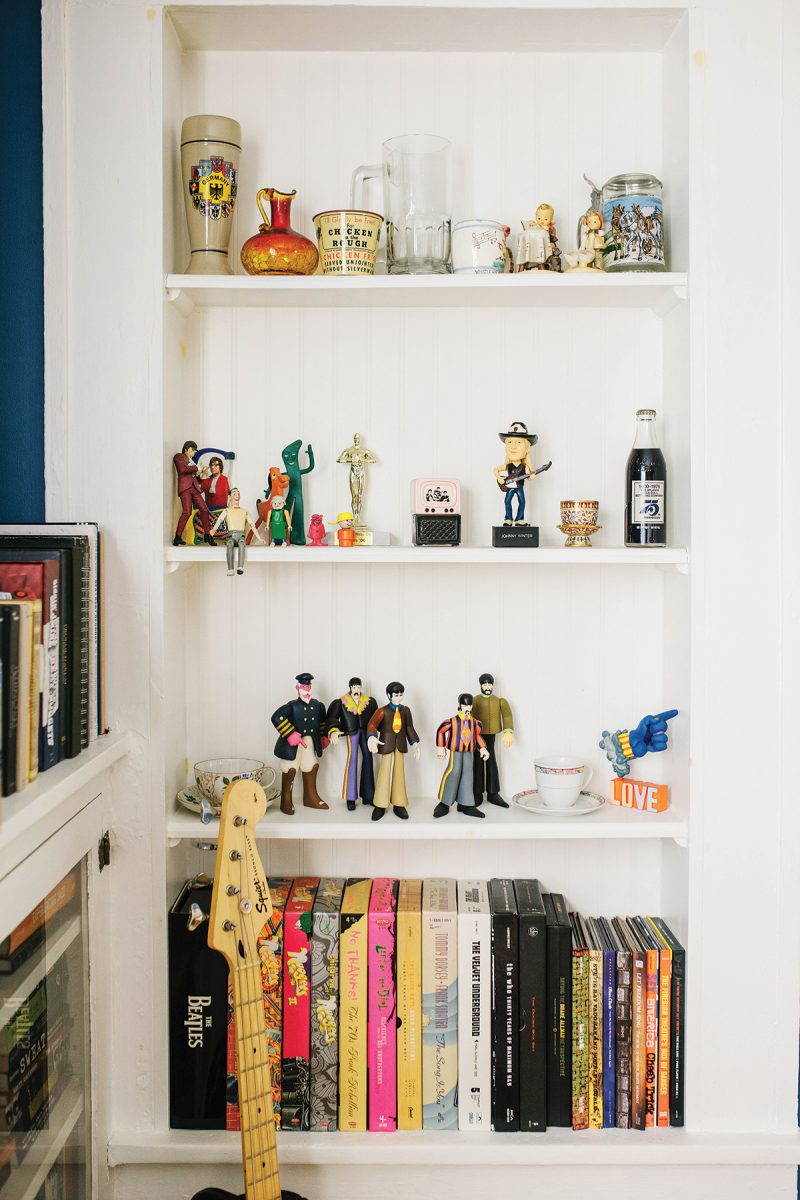
Photo by Evan Anderson
The paper turned out to be a fifty and six tens —$110 dollars cash in 1985 bills. “As a full-time music journalist,” Kopp says, “I can tell you, getting a pile of money isn’t something that happens very often.” The mystery stash from the ’80s proves there’s always a story behind the music.
Kopp has a historian’s knowledge of bands and their albums mixed with a fan’s attitude when it comes to enjoying them — like a real-life version of John Cusack’s character in the film High Fidelity (2000).
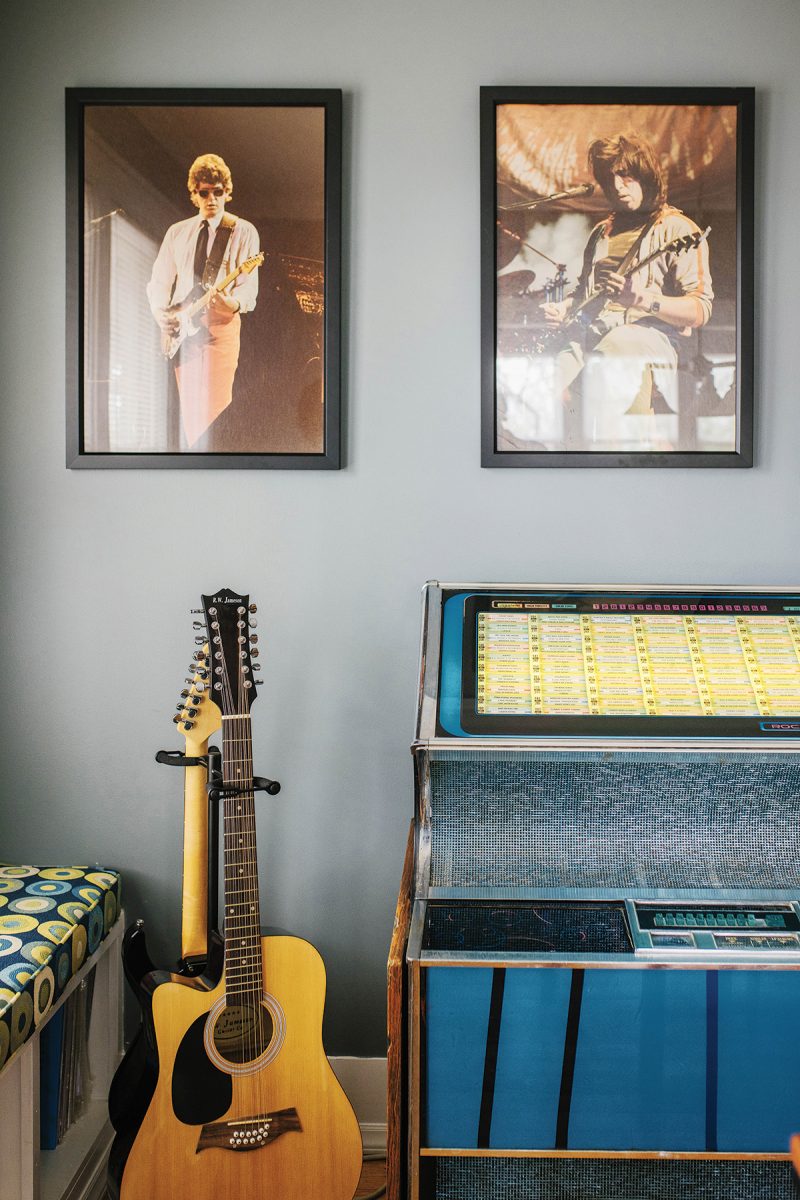
“I started buying albums when I was nine. I still have almost every one I bought,” Kopp reveals.
Today, his collection includes more than 4,000 Vinyl LPs, 5,000 CDs, and hundreds of 45s — and yet Kopp doesn’t consider himself a collector.
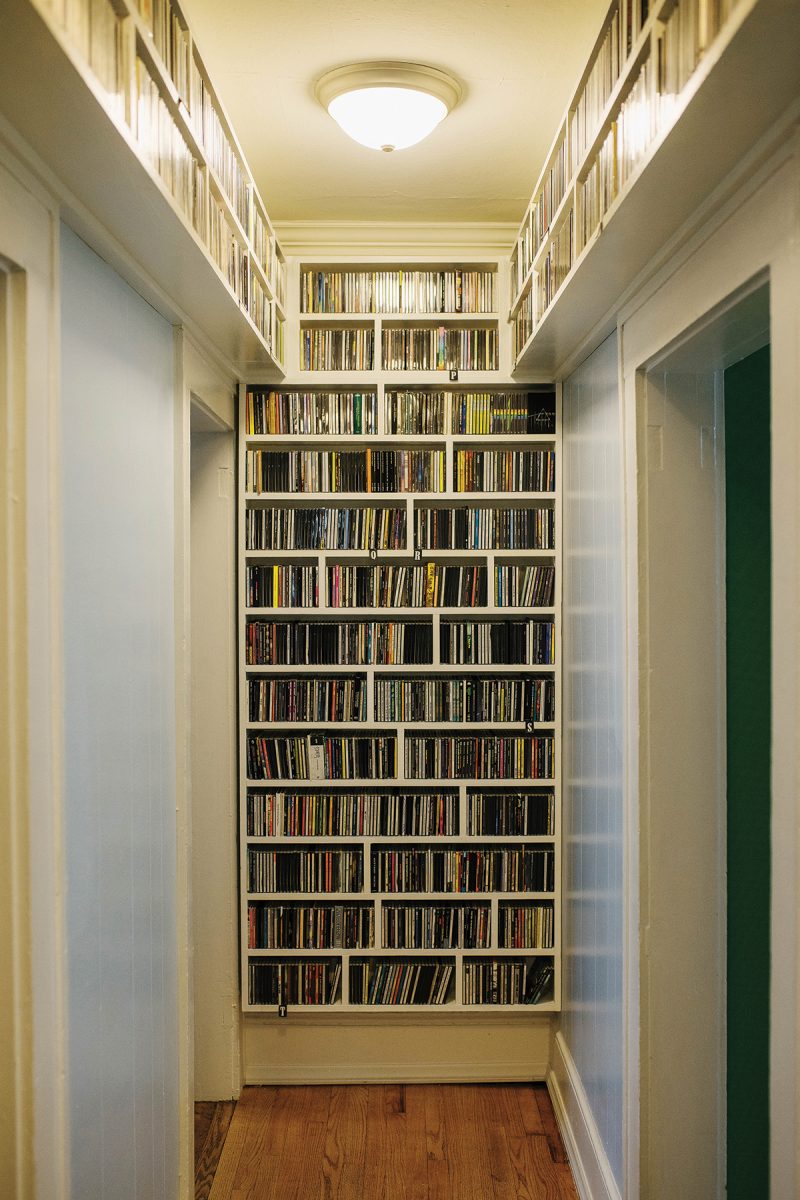
“Collectors buy stuff that’s rare or valuable,” he says, for commodity alone. “If I stumble across a rare record that musically doesn’t interest me, I don’t buy it.”
As young as age six, Kopp paid attention to the AM Radio DJs announcing the names of the artists after their songs came crackling over the airwaves. By nine, he was devouring all of the music reviews and interviews he could find. “I’m just somebody who has always wanted to know the backstory. I thought, This is cool. I’ve learned so much from reading these, I want to do that.”
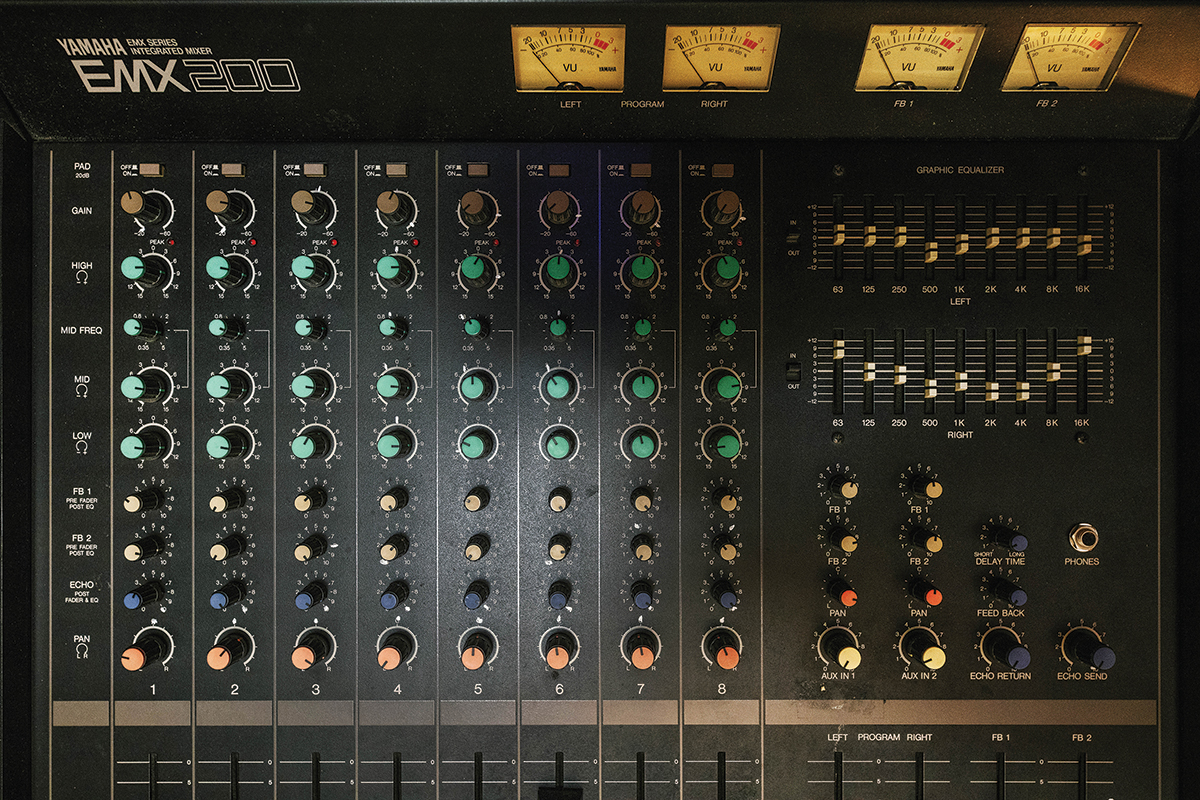
While working as a freelance web developer in 2005, he came across an ad for a music magazine in Boston that was looking for writers.
“A year-and-a-half later, I was editor-in-chief,” says Kopp. He managed 50 freelance writers for a 160-page glossy (the now-defunct print mag Skope). “I edited every word. It was long hours, but it was fun.”
The experience led to lasting relationships with music publicists and bands across the country — while adding to his ever-growing music library.
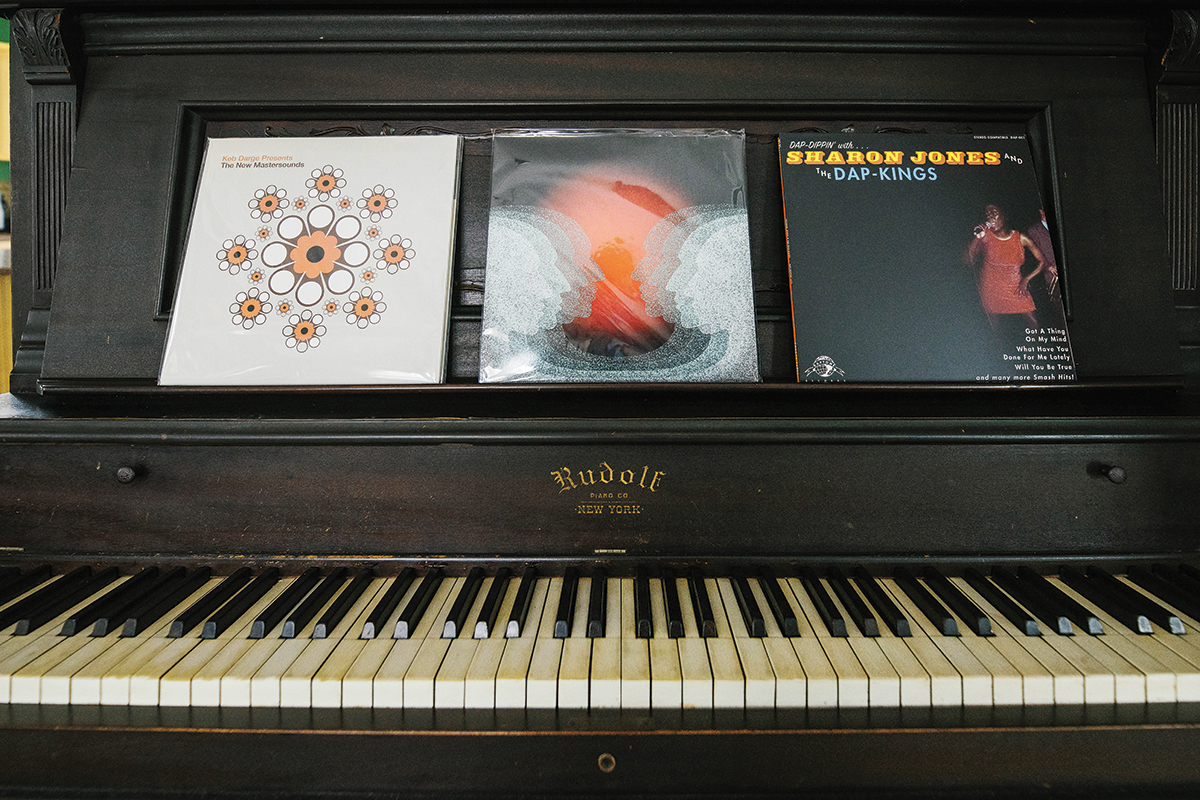
Photo by Evan Anderson
Shortly after Skope folded, Kopp started blog.musoscribe.com, where he publishes music reviews and artist interviews daily. The blog currently hosts close to 4,000 of his writings. He has bylines in dozens of music magazines, newspapers, and alt-weeklies — including regular contributions to the San Francisco Weekly — and locally in Bold Life.
The first record Kopp spun to death was Pink Floyd’s Dark Side of the Moon. In 2018, he published his first book, Reinventing Pink Floyd (Rowman & Littlefield). Jerry Shirley, drummer for the band Humble Pie, wrote the book’s foreword and an Amazon review calling it “knowledgeable, well-informed, conscientious, and sensitive.”
However, Kopp says liner notes are his favorite style of music writing (he’s penned them for more than 30 albums, including four reissue albums by jazz legend Julian “Cannonball” Adderley). “What I love to do is track down [as many] people involved with the album as I can. I’ve done that for four different labels now; they’ll say, ‘This is the album, write what you want.’”
Though he’s interviewed plenty of big names, including Sonny Rollins and Yoko Ono, Kopp most looks forward to discovering “the next artist who is putting out their first album that nobody knows about. I find that wonderful and life-affirming and fascinating.”
With each new assignment comes the chance to acquire and listen to more music. His collection doesn’t grow as fast as it used to “because there’s simply nowhere to put them. I curate now: If I’m going to keep [a record], the household rules are, I’ve got to take something off the shelf.”
Kopp and his wife, Audrey, live and work out of their 1927 Craftsman-style home. “It’s got 9-foot ceilings. That’s handy if you’re having to build custom shelving for records and CDs,” he says.
Signed albums adorn his office (Paul Williams, Lou Reed) next to three left-handed guitars and an assortment of keyboards and synths (Kopp plays keys in a local cover band). Box sets and music books are stored in custom built-ins in the living room where framed photos Kopp and Audrey have taken at live shows hang on the wall. CDs run the length of the hallway on a shelf below the crown molding — occasionally extending to the floor.
The dining room houses a 1973 Rock-Ola 448 jukebox that the couple has filled with 160 of their 45 singles. And a lounge off the dining room contains the core of Kopp’s record collection — thousands of albums shelved wall to wall, floor-to-ceiling — arranged A-Z by artist in the order of their release date. It could belong in a library — if libraries came with liquor cabinets.
Kopp’s priorities, interests, and identity are wrapped up in these albums he keeps neatly catalogued — but there’s something else: “For me, it’s one way to engage in travel in time and space,” he says. “[I can] go back to my college years, go back to a time I didn’t experience, like the Mod scene in London in the ’60s or the Bop scene of the ’50s. It’s a means of transportation.”
Bill Kopp, Asheville. Visit Musoscribe, Kopp’s online music magazine, at blog.musoscribe.com to read all of his latest reviews and interviews. His upcoming book, Disturbing the Peace: 415 Records and the Rise of New Wave (HoZac Books), is due out later this year.

I’ve long wondered why people who collect, yes, “collect,” records nearly always have ones that are so popular that you can find them not only in practically everyone else’s collections, but in flea markets as well.
It’s almost as if someone is boasting that they, too, have a huge amount of what the majority of listeners have – just that it’s all in one place. I guess that it’s tied in with the unfortunate idea that if the record was a big seller, that it automatically makes it good and worthy of ownership and cult-like status. It’s a bit sad really when you think about the opportunities lost when you could actually expand your horizons beyond the quotidian and actually discover how sound or music or art in general is interpreted and molded by others the world over.